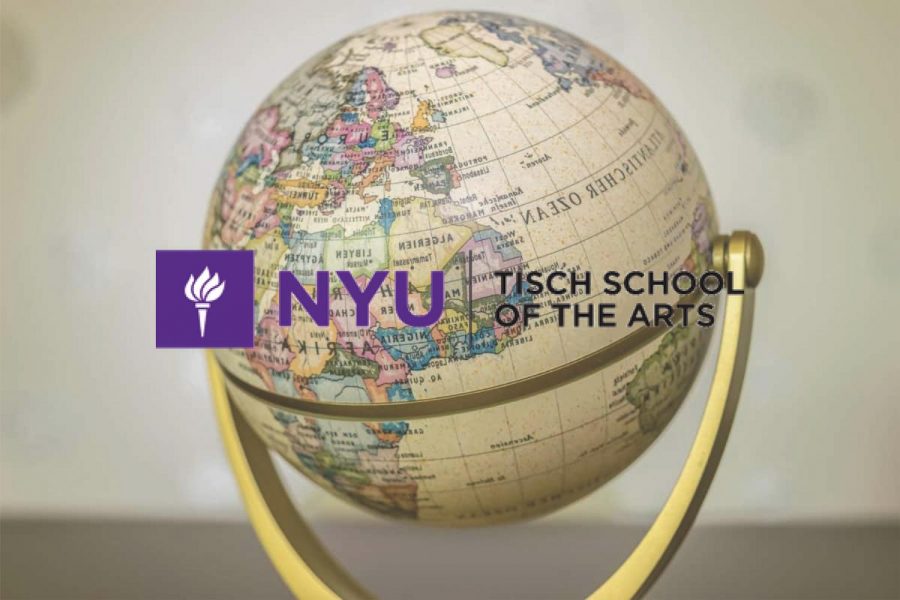Seren Jang was about to finish her first year in Tisch Drama at the Meisner Studio when COVID-19 moved her class to Zoom.
Jang flew back home to New Zealand. Due to the lack of acting opportunities, she decided to move to Seoul, South Korea, where roles were more abundant.
Though many on-screen and on-stage productions have halted in New York City, many acting students like Jang are reluctant to move back to their hometowns.
She was fortunate enough to avoid her hometown and move to Seoul, where she takes in-person acting classes in addition to her online classes with NYU. She’s trying to be as productive as possible during the pandemic. “The main thing would be just to keep practicing a lot of monologues and doing self-tapes,” she said.
Many of these students, grappling with a lack of opportunities, have started to create their own opportunities through original, self-produced content.
These overseas performers have stepped up their multi-tasking skills, acquiring handmade props, puppets and other accessories to bring their productions to life.
Tisch sophomore Danis Zhang is a part of NYU’s Playwrights Horizons Theater School. He returned to his hometown of Shenzhen, China for a short period of time, before traveling to other Chinese cities such as Hefei and Hangzhou in search of inspiration.
Having directed several virtual plays since the pandemic hit, Zhang navigated a whole new world of virtual performance.
“The best thing for artists to do during this pandemic is to always be open to experimentation, be fearless to step on this unknown journey,” says Zhang. “I’m always excited to innovate and work on theater on different platforms.”
Zhang directed and performed “Fever Dream,” which is a parody of the well-known “Avenue Q.” The in-person production was shut down due to the pandemic.
This play-within-a-play puppet show is based on his true stories from his home country. He included short films and live monologue outros in his satirical puppet show. Zhang used these forms of media to speak up for the LGBTQ+ community against censorship rules within the Chinese media industry.
“Besides the visuals at the very beginning, I did everything by myself — set design, the editing, the renderings — all by myself,” Zhang says, adding that this accomplishment is something he would never have achieved if the pandemic didn’t happen. “I started the process during the most intense moment in this world, so I started wondering who am I making art for? I was trying to create a piece that is not only for the audience but also for us artists.”
Other NYU performers are making the best out of a bad situation by exploring new roles within the arts field. Catherine Cheng, a Tisch sophomore majoring in Performance Studies and minoring in Dance, works as a part-time actress and as an acting tutor for younger artists in Shanghai.
“I just signed with a TikTok company but haven’t started acting yet,” says Cheng. Besides taking dance courses offered as part of the Go Local program at NYU Shanghai, Cheng is utilizing her other skills and talents to direct, produce and collaborate with friends from the Central Academy of Drama in Beijing.
Perhaps the best thing that the pandemic offers, according to these students, is the abundant time for contemplation. Yudun Wang, an alum of the Stella Adler Studio of Acting, is optimistic about changing trends in the industry. He advises young actors who find themselves out of work to always be in the acting mode, since he believes that acting is a way of living.
“I find strangers online, and I’m like, do you want to hear a play, I can read a play for you, which one do you want to hear? Romeo and Juliet? Fine! Julius Caesar? Fine,” says Wang. “[Acting] shouldn’t be outside of your life at any moment. Even just within five minutes, you can try out new songs, new ideas from your daily struggle with the pandemic.”
A version of this article appeared in the Monday, Mar. 15, 2021, e-print edition. Email Jennifer Ren at [email protected].


























































































































































